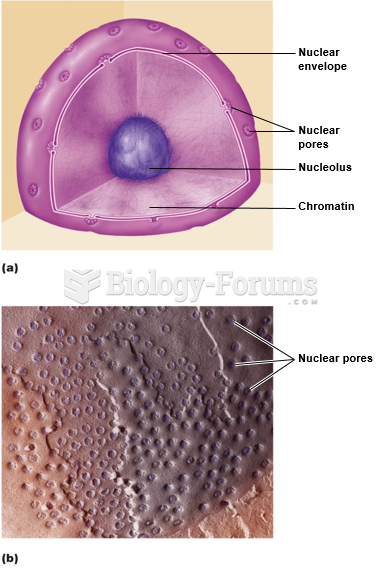|
|
|
There are over 65,000 known species of protozoa. About 10,000 species are parasitic.
A serious new warning has been established for pregnant women against taking ACE inhibitors during pregnancy. In the study, the risk of major birth defects in children whose mothers took ACE inhibitors during the first trimester was nearly three times higher than in children whose mothers didn't take ACE inhibitors. Physicians can prescribe alternative medications for pregnant women who have symptoms of high blood pressure.
More than 2,500 barbiturates have been synthesized. At the height of their popularity, about 50 were marketed for human use.
Less than one of every three adults with high LDL cholesterol has the condition under control. Only 48.1% with the condition are being treated for it.
The Centers for Disease Control and Prevention (CDC) was originally known as the Communicable Disease Center, which was formed to fight malaria. It was originally headquartered in Atlanta, Georgia, since the Southern states faced the worst threat from malaria.
 Bluehead wrasse males with yellow females of the species. If the blueheaded male is removed from a t
Bluehead wrasse males with yellow females of the species. If the blueheaded male is removed from a t
 Mother giraffe and calves feeding. It is mostly the females that raise young, and they may gather in
Mother giraffe and calves feeding. It is mostly the females that raise young, and they may gather in





